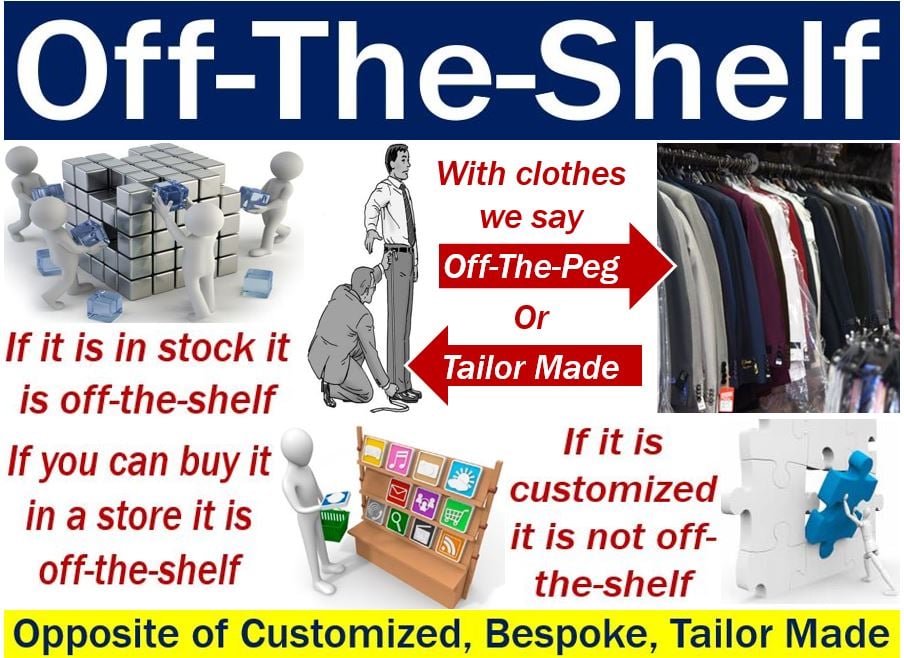What is ‘off-the-shelf’? – Definition and meaning
An off-the-shelf item is something that is available now. The seller has it in stock. In other words, the seller does not need to make it specifically to suit a particular purpose. It is the opposite of tailor-made, customized, or bespoke. Another example of a term with the opposite meaning is custom made.
Put simply; the seller has not customized it. It is ready for anybody to use without modification.
When talking about clothes, we use the terms off-the-peg or ready to wear.
In the computer software world, the term refers to a factory-packaged product. It is available for sale either to the general public or companies. It is the opposite of custom software.
BusinessDictionary.com has the following definition for the term:
“Commercially produced, ready-made, standardized, and regularly available equipment, goods, parts, software, etc.”
Off the shelf is also the opposite of make-to-order. German and Japanese carmaker use a make-to-order system. They do not make the finished product before a customer’s order comes in.
COTS in the United States
We often use the term COTS, which stands for Commercial Off-The-Shelf.
The US government defines ‘COTS’ as a formal term for commercial products or services. They are available in the marketplace, and the government can buy and use them under government contract.
Microsoft Corporation, for example, is a COTS software provider.

Off-the-shelf company
Before electronic company formations became common, off-the-shelf companies were popular.
They were companies that formation agents would register in their own name. The agents would then transfer them to their customers’ names.
They were common when people had to register companies on paper, rather than electronically.
Company formation agents kept lists of companies that customers could choose. When they chose one, the agents would transfer them to the new owner.
In most countries today, you can form a new company electronically. For example, in the UK, people submit applications to Companies House and have a new company within hours.
Creating a new company yourself electronically is much cheaper than purchasing an off-the-shelf one.
Training courses
There are many online training courses. Some are off-the-shelf courses. In other words, people design them to satisfy the training needs of many different businesses. They are much cheaper than bespoke courses, but may not meet all the training needs of each company.
However, ready-made courses are relatively fast to deploy compared to custom eLearning solutions. They are ideal for providing staff training on subjects with ‘generic content’ such as safety, environment, soft, skills, and technology/IT.
According to blog.commlabindia.com:
“[An off-the-shelf eCourse) saves time, as you don’t have to spend time to develop the course. Here the design, development, and QA/testing is handled by the vendor.”

